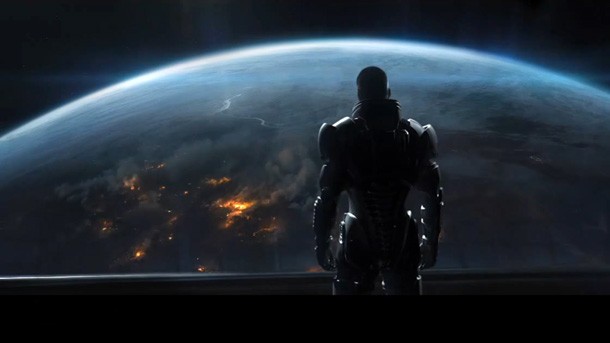Managing Your Mistakes: Rethinking Failure In Video Games

In the early years of gaming, losing always meant the same thing. Whether it was Mario plummeting down a hole or Pac-Man getting cornered by his ghostly adversaries, your two choices for life after death were to start over or stop playing. The last 30 years have seen gaming evolve into a form that barely resembles its early days; developers have become a new breed of storyteller, their legitimacy recognized by everyone from the Smithsonian Institute to the Supreme Court. Fail to meet an objective in one of their games, however, and your options are the same as they were in the 1980s. The time has come to rethink what losing means in video games.
Despite the growing complexity of games in virtually every modern genre, botching a mission still almost always results in restarting from the last checkpoint, save file, or – in the worst case scenario – the beginning of a mission. While these systems for saving progress are still invaluable mechanisms for ensuring players aren't wasting their time in modern games, using them as a blind "do-over" opportunity simply isn't conducive to storytelling.
When was the last time you read a novel or watched a movie where the protagonist was perfect? Where, regardless of the scope or severity of the obstacle at hand, the main character navigates the twisting plot without a misstep? The very concept contradicts the fundamentals of good storytelling, which necessitates character growth – usually attained through making mistakes and learning from them.
Not in video games, however. When players make too big of a mistake or deviate from the intended outcome of an objective, the game sweeps their performance under the rug, resetting the world to an earlier time. Players are expected to pretend their actions, along with the associated gameplay, never happened, all for the sake of the story. And yet, over the past few years we have seen video game stories that support more complexity. Morality systems have become a new standard in gaming, where a player's path is defined by the choices he or she makes along the way, molding a more flexible story arc.
Instead of once again navigating through the gray haze of moral choice, I would much rather play a game where the shifts in the story come from my successes and failures. If I fail to protect a key character from an incoming raid, or prevent my nemesis from detonating a bomb in the city, show me the aftermath: the effect it has on the story, the environment, and my character. Make my choices and performance matter. Don't just rewind the story and give me a mulligan.
Early forays into this concept have been promising. In Heavy Rain, a deadly encounter with a creepy doctor can be skipped entirely if the player practices good judgment. Ideally, this missed gameplay would be replaced by something else, but having the ability to read a situation and make a meaningful decision makes a lasting impression on the player. Later in the game, character deaths are permanent and significantly affect the final scenes. This level of flexibility wouldn't be right for every series – Halo wouldn't be much of a game if you replaced Master Chief in the first mission due to an ill-timed plasma grenade toss. Likewise, not every moment of gameplay should be potentially detrimental to the story. Tying key plot points to gameplay, however, would instill the player with a sense of ownership over the events.
The end of Mass Effect 2 gave us a taste of the tension that can be attained when player choice matters. Sure, the variations were caused by Choose Your Own Adventure-style decisions and not gameplay. But the loss of your crewmates – and the knowledge that it was because of your actions – made the story personal. Similarly, the potential for blowing a case in L.A. Noire may be frustrating for perfectionists, but it adds a greater sense of significance to the much-lauded interrogations.
For video game narratives to evolve, developers aren't the only ones who will have to rethink losing in a video game. Players will, too. For this storytelling approach to work, players have to be willing to make the transition from being flawless heroes to fallible human beings. If that leads to more nuanced and meaningful storytelling, however, I'm more than willing to live with my mistakes.
Note: This article originally appeared in the October 2011 issue of Game Informer (#221)

Get the Game Informer Print Edition!
Explore your favorite games in premium print format, delivered to your door.
- 10 issues per year
- Only $4.80 per issue
- Full digital magazine archive access
- Since 1991









